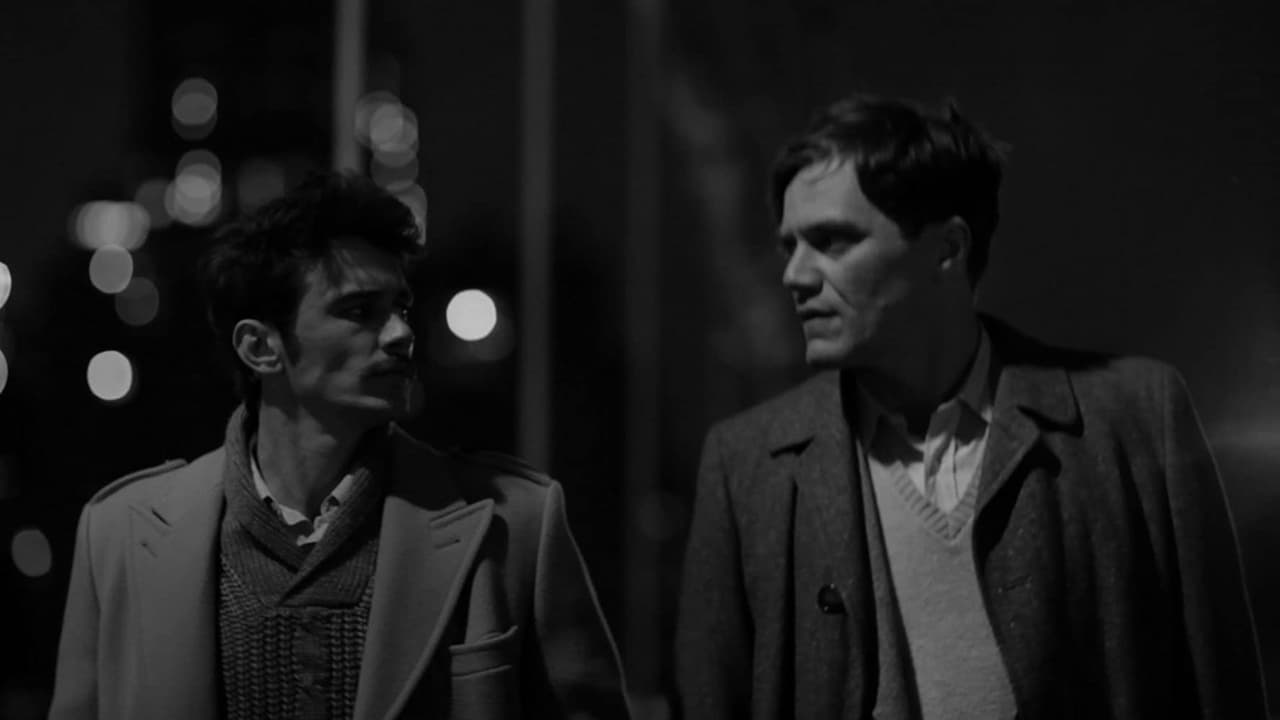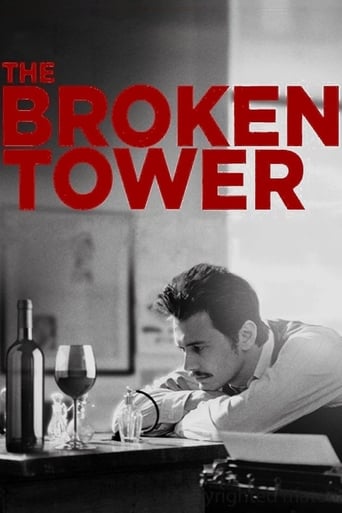



People are voting emotionally.
One of the best films i have seen
Easily the biggest piece of Right wing non sense propaganda I ever saw.
View MoreThis is a dark and sometimes deeply uncomfortable drama
View MoreJames Franco does an experimental autobiography of American poet Hart Crane. Michael Shannon plays Emile, one of his lovers. It's black and white and supposedly Franco's student film at New York University. It is unwatchable if you're looking for a narrative driven story. I'll be cruel and say it's pretentious. It's an art student film. It is technically competent. The black and white photography looks good. Unlike most amateur films, this one has top level actors. It is simply not good as a film. I'd rather have a short film with only Franco reading poetry. There's no way to maintain enough concentration to follow the entire run.
View MoreWARNING - CONTAINS SPOILERS This film fails on so many levels, it is hard to decide what is the worst thing about it. For one thing, the pace is maddeningly slow, and way too much camera time is spent on the back of Franco's head, or of him walking up endless flights of stairs. The incessant, long blackscreen segments are excruciatingly boring and add a further drag to the film's pace. Dialog is mostly absent, save for over-long recitals of Crane's poems by Franco, who becomes nothing more than a talking head for minutes at a time. Continuity is spotty, at best. At the film's conclusion, one knows nothing more about Crane than he knew before viewing it. I realize this was a student thesis of Franco's, but the entire project is boring, puerile, and without merit.
View MoreI must confess that I bought The Broken Tower for the wrong reason, because I read that James Franco did something in it that gay men do all the time but non-porn actors NEVER do on film, even openly gay actors in flagrantly gay movies. That bit was kind of a bust, but I ended up liking the movie anyway, for less sleazy reasons.I know next to nothing about Hart Crane, and I don't know a lot more after having watched this movie. It's not a biography by any means. My best guess would be that it's James Franco's impression of what Crane was like, and that's what makes it interesting.It's oddly directed, with very many long, hand-held, extreme closeups, filmed from about chest-level, of Franco (as Crane) walking the streets of various cities, usually looking up from just under his chin, but sometimes looking at the back of his head. That motif repeats often.At least 70% of the spoken lines in the movie are Franco (always as Crane) reading Crane's poetry: one long scene reciting to an audience in a formal setting, and much poetry read as a sort of narration as various events unfold on screen. This movie definitely is not for people who hate poetry - Crane's poetry in particular.It's definitely not for people who need action, romance, likable characters, or a clear story line in movies. It's for people who can sit through a 108-minute experimental movie without any particular expectation as to what it's going to be like.It's for people who appreciate enthusiasm and passion in artists (I'm talking mainly about Franco, but it applies to Crane too, I suppose) even if the result is not particularly coherent. It's obvious that this was a labor of love for Franco, and that more than anything else is what makes it interesting.
View More***Alert: some spoilers contained herein - but if one knows the life of Crane then these are not so revealing).*** Such is a healthy attitude for a despondent artist. It is one of the few bright spot seen shimmering from Crane in this biopic. James Franco takes Hart Crane's words - poetry and letters - and uses them as a backdrop for the evolution of a writer of promise cut down by his own wretched soul. At least that is how Crane comes off.Before I watched this flick I re-acquainted myself with Crane's verse; then I kept his book at hand during the film - which helped me keep interested in the movie. Franco manages to take the best of Crane - his poetry - and make it as bland as boiled chicken. There is one scene with Crane reading his work - rather than infuse the passion seen elsewhere in the film emanating from Crane - Franco chooses to recite the poems with no heart. The crowd's reaction to the second of the poems ('For the Marriage of Faustus and Helen') is understandable given the content and how Franco drones as Crane. The man's poetry needs to be read and sifted through several times before it feel accessible in some small way and Francdo blew a great opportunity to get his fans - who might not otherwise read any verse - interested in poetry. Granted, the rest of the film has me wanting to delve deeper into Crane's bio and his work. But I am most likely an anomaly in this respect, as I, too, am a poet and a teacher of literature. Still, with a positive attitude toward what is shown and read of Crane someone could become entranced with his work and also want to read more of it.As for the filmmaking aspect, there are many issues there: hand-held cameras make for unsteady viewing, seemingly random pick-up shots are meant to set scenes, and a windscreen was sorely needed for the microphone used to collect audio in several shots. An interesting approach is used to show the leap from younger Crane to the (slightly) older Crane played by Franco - using the aforementioned sporadic shots. It is filmed almost entirely in black and white (which is what one might expect from this sort of film, artsy and so-forth). Colour does work its way in during a trip to the Notre Dame Cathedral in Paris - but it had me screaming for the return to B&W since the cameras employed could not handle the natural interior lighting of the church, therefore showing the limitations of the production. Perhaps Franco thought this approach would show the beauty of the place and highlight the impact it had on Crane; however, the camera's constant trying to adjust its 'eye' to the setting took me out of the film.The story is unfolded through a series of "Voyages" (fitting, as the film ends with an excerpt from Crane's so-named poem and that it is on a sea-vessel that the poet chose to end his life). Title cards offer the subject in each 'Voyage' and the section reflects this accordingly: which helps one follow Crane's overall voyage.Franco manages to show the tortured artist trying to support himself and create poetry - but is ultimately unable to do both. Grants and fellowships are the godsend for any artist to contribute his verse to the world and that Crane enjoys both and is able to write is evident. Malaise works its way into his psyche and builds along the way to show the viewer what led to Crane's demise.The much-hyped oral pleasure scene seems unnecessary - yes, Crane was gay. There were better ways to make this known (as Franco shows in other parts of the movie) without having to resort to such a cheap ploy for shock value.There is a scene where Crane - frustrated by finding out his financial situation is hopeless, vents his feelings in his room; while I get the emotion, Franco falls short in expressing the way Crane would have felt. This stems, perhaps, in Franco himself never feeling denied anything he truly wanted so he is unable to display the rage a truly tormented artist would vent when going from simmering anger to a boiling cauldron of virulence in an instant.Michael Shannon appears in a minor, yet major role, but his character hardly speaks and comes, then goes, and comes then goes again so quickly that such a power of talent (he alone propelled 'The Runaways' forward and made that flick worth watching) never gets a chance to make an impact.Overall, the movie is ambitious and Franco does a righteous job of adapting the source material employed (Crane's poetry and Paul Mariani's 'The Broken Tower: The Life of Hart Crane') into a watchable slice of celluloid. The build-up of a creative genius torn apart by knowing his own abilities are wrecked by external factors is shown rather well.(Full Disclosure: the above is the exact same review I posted on iTunes for this film)
View More